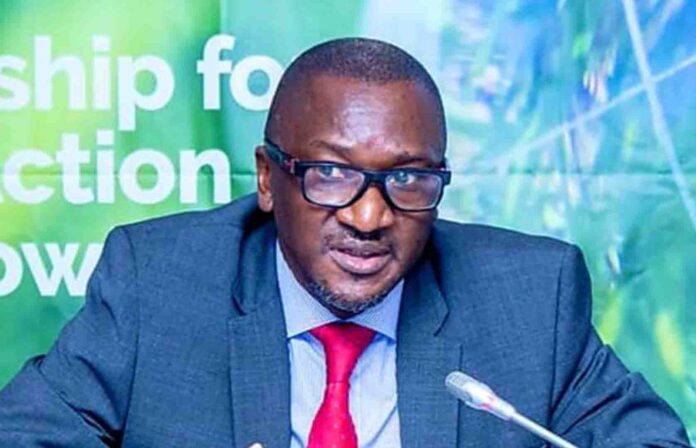Zambia’s Minister of Water and Sanitation, Collins Nzovu, has raised the alarm over the country’s deepening water crisis and unveiled an ambitious plan to modernize the sector through Public-Private Partnerships (PPPs).
“Our infrastructure is stuck in the past,” Nzovu declared during a keynote speech at the Zambia Water Forum. “While our population has doubled since 2000, investment in water systems has stagnated.”
Today, 4 million Zambians lack access to clean water, and 60% of urban water systems are operating at half capacity, hampered by outdated infrastructure and frequent power shortages. According to the 2023 National Water Policy, 70% of Zambia’s water treatment plants, most of which were built in the 1980s, are now obsolete.
In Kitwe, residents endure 72-hour water rationing cycles, forcing many to rely on contaminated wells. “Cholera outbreaks are inevitable without intervention,” warned Dr. Matshidiso Moeti, WHO’s regional representative.
Nzovu’s PPP initiative aims to attract $500 million in investment by 2025, focusing on upgrading water purification plants, drilling new boreholes, and improving distribution networks. A pilot project in Ndola, funded by a €20 million EU grant, has already shown promising results—reducing water leakage by 30%.
However, the proposed privatization model has drawn criticism. “Private firms prioritize profit over people,” said Paul Hakoola, Director of a local NGO. “We’ve seen tariff hikes in Kenya and Ghana under similar models, pricing out low-income families.”
Nzovu responded by assuring the public that affordability safeguards, such as subsidies for vulnerable groups, will be built into all PPP contracts. “PPPs must serve the public interest,” he emphasized. The ministry is also exploring decentralized water solutions, including solar-powered community kiosks.
Meanwhile, the European Union has increased its funding for Zambia’s water sector by 30%, signaling international confidence in the reforms.
Despite these strides, significant hurdles remain. Bureaucratic red tape and corruption scandals,such as the 2022 misallocation of $4 million intended for borehole development—threaten to derail progress. In response, Nzovu has promised to “clean house,” launching an anti-corruption task force within the ministry.
“Failure is not an option,” Nzovu concluded. “Water is life.”



That is appreciated, sort out the water issues but the day UPND will realise that the weighting on the cost of living alone is 90% and everything else including free education, paying retirees, stopping caderism and the rest fall in the 10% only is the day UPND might start working. They will even stop this thing of saying we have fulfilled 90% of our promises. Cost of living alone which is not sorted out carries a mark of 90%
Very good advice to those who have ears
Crisis after Crisis…..health Crisis…electricity crisis…water crisis….and all they do is make ” key note” speeches and problem solved….thats how things get done in Africa
With self praises. And stage managed endorsements
Sport on! It’s crisis after crisis; year in, year out! The belt is right up to the bone!
After the speech, get to work in your communities. What are you doing to help water wastage or even water availability in your community??? For me, I support about ten families who draw water from my well ku Ngombe compound.
Shameful failures in a country with countless water bodies and a relatively low population.Mauritania,Niger and Chad would laugh at us as foolz bearing in mind those are desert nations.
Solutions are already there — and can be implemented within the budget of government. We already suggested to you to adopt smart metering for both your domestic deliveries as well as trunk water carrying pipes. Sensors will detect a leak and shut off the nearest valve so that you can come and attend to the leakage even before it is visible. We were told off … we have implemented in other countries. You are my country, and you reject your own.
This is the results of the African aliment called…….
“ maintenance is unknown “
Everything needs maintenance, buildings, sewer systems, water systems, machines…….
Catering for population growth is part of maintenance………
However we Africans do not have equivalent words to maintenance , we don’t know maintenance in our culture……….we only fix when broken , if we can……….
We are however too dul.l to try and fix this anomaly, that’s why everything breaks down , everything breaks down without maintenance………..as in this case.
FWD2041
UPND wake up time is running out, Stop thinking of your pockets and put Zambia first
We are all aware of the real issue here
@Spaka you can stand on a mountain and tell them the truth when all they know is how to “tantama for hand out” what do you expect?
Private access roads…koma Boma iyangane po. They throw rubbish around, boma icleani doti….yet tuhey die from the same cholera.
Sounding like the Children of Isreal during the time of Moses. Loving to worship the wrong things instead of focusing on the right….yet expecting a different result.
When will they learn?
No one will save you from yourselves…..
Comments are closed.